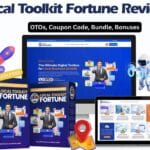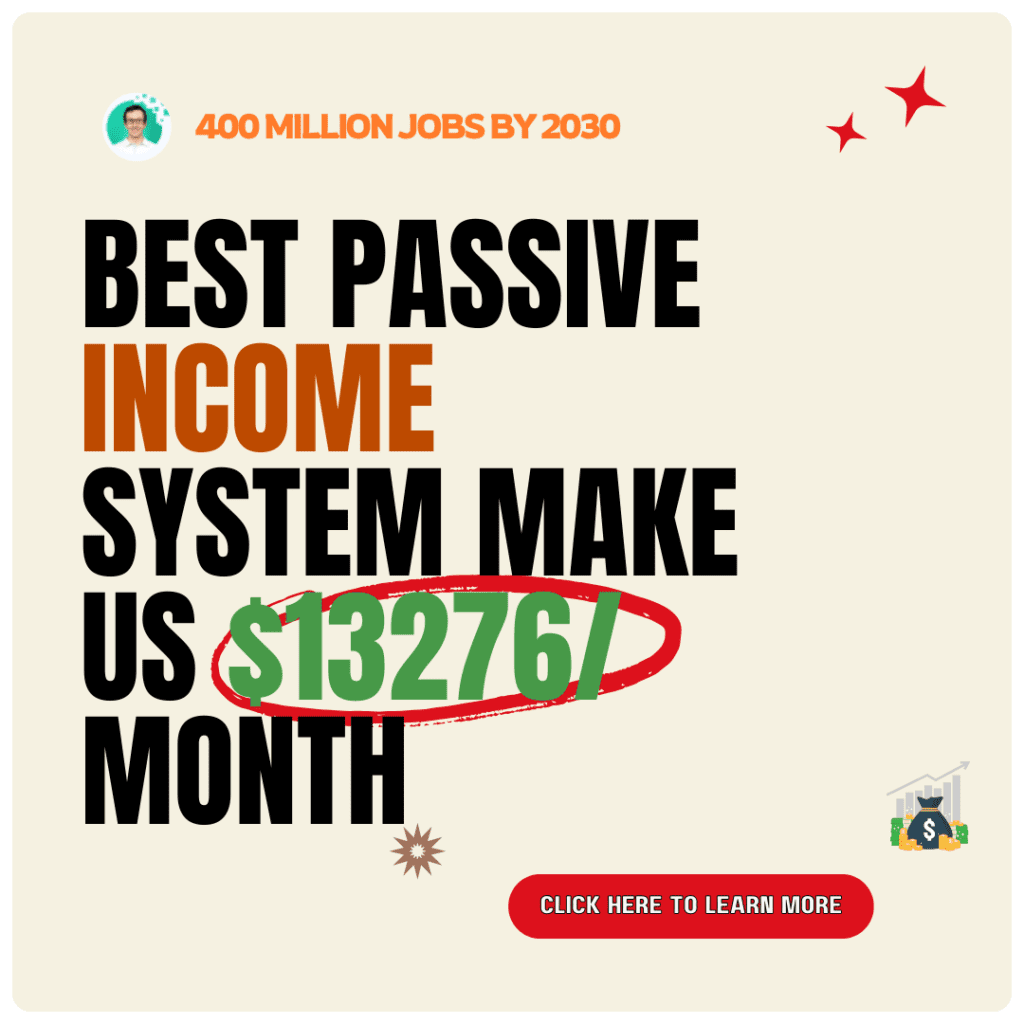Do you ever dream of a life where financial worries are a thing of the past? Imagine consistently earning $7,000 per month, providing the security and freedom to live life on your terms. This blog is your gateway to that dream, where we’ll unveil the secrets of Cash Flow Mastery.
My Best Recommended & Proven Way to Make $100 Daily – Watch THIS FREE Training to START >>

In a world filled with complex financial advice, we’re here to simplify the journey for you. No jargon, no convoluted strategies. Just practical, relatable insights, and actionable steps to help you achieve your financial goals. We’ll explore the art of understanding cash flow, budgeting effectively, diversifying your income, saving wisely, managing debt, and making informed investments. Whether you’re just starting or seeking to level up your financial game, our guide is your roadmap to success. It’s time to take control of your financial future and unlock the potential of consistent $7,000 monthly earnings. Let’s begin this transformative journey together.
Understanding Cash Flow
What is Cash Flow?
Cash flow is the lifeblood of your financial well-being. Simply put, it’s the money that flows in and out of your bank account on a regular basis. Positive cash flow means that you’re earning more money than you’re spending, while negative cash flow indicates the opposite. To consistently earn $7,000 per month, you need to maintain a positive cash flow.
Importance of Positive Cash Flow
A positive cash flow is essential for financial stability and growth. It allows you to cover your monthly expenses, save for the future, and invest in opportunities that can increase your wealth. Without it, you may find yourself in a cycle of debt and financial stress.
Budgeting: Your Financial GPS
Creating a Monthly Budget
Budgeting is like having a financial GPS that guides your spending decisions. Start by tracking your monthly income and expenses. Create a budget that allocates a portion of your income to essentials like rent or mortgage, utilities, groceries, and savings. Stick to your budget to ensure you’re not overspending.
Sticking to Your Budget
Sticking to your budget can be challenging, but it’s crucial for achieving your $7,000 per month goal. Cut unnecessary expenses, find cost-effective alternatives, and avoid impulse purchases. Over time, your discipline will pay off, and you’ll see your savings grow.
Multiple Income Streams
Diversifying Your Income
Relying on a single source of income can be risky. To consistently earn $7,000 per month, consider diversifying your income. This can involve taking on part-time work, freelancing, or exploring online opportunities. Having multiple income streams provides a financial safety net.
Passive Income Opportunities
Passive income is the holy grail of financial stability. Invest in assets like stocks, real estate, or start a side business that generates income even when you’re not actively working. Over time, passive income can significantly contribute to your financial goals.
My Best Recommended & Proven Way to Make $100 Daily – Watch THIS FREE Training to START >>
Savings: Your Financial Safety Net
The Power of Emergency Funds
Life is full of surprises, and having an emergency fund is your safety net. Aim to save three to six months’ worth of living expenses in a separate account. This fund will protect you in case of unexpected events, such as medical emergencies or job loss.
Long-Term Savings
In addition to your emergency fund, allocate a portion of your income to long-term savings. Whether it’s for retirement, education, or a major purchase, saving consistently will help you reach your financial objectives.
Debt Management
Tackling High-Interest Debt
High-interest debt, such as credit card debt, can be a significant obstacle to achieving your financial goals. Make a plan to pay off high-interest debt as quickly as possible. This will free up your income for more productive uses.
Building Good Credit
A good credit score is your financial passport. It opens doors to better interest rates, loan approvals, and more. Pay your bills on time, use credit responsibly, and monitor your credit report regularly to ensure it remains in good standing.
Investing Wisely
Types of Investments
Investing is a key component of building wealth. Explore different investment options, such as stocks, bonds, real estate, and mutual funds. Diversify your investments to spread risk and increase your chances of earning a return.
Risk and Reward
Remember that all investments come with some level of risk. Understand your risk tolerance and invest accordingly. While higher-risk investments can offer greater rewards, they also carry the potential for larger losses.
Side Hustles and Gig Economy
Exploring Part-Time Opportunities
In today’s gig economy, there are countless opportunities to earn extra income. Consider taking on part-time work, freelancing, or utilizing platforms that connect you with gig opportunities.
Maximizing Earnings
When pursuing side hustles, focus on activities that align with your skills and interests. This will not only make the work more enjoyable but also increase your chances of success and higher earnings.
The Power of Networking
Building Valuable Connections
Networking is a powerful tool for career and financial advancement. Attend industry events, join online communities, and connect with professionals in your field. Building relationships can open doors to new opportunities and potential collaborations.
Leveraging Relationships
Don’t just collect business cards—build meaningful connections. Offer your expertise, support others in their endeavors, and collaborate on projects. These relationships can lead to mentorship, job referrals, or joint ventures.
My Best Recommended & Proven Way to Make $100 Daily – Watch THIS FREE Training to START >>
Embracing Frugality
Living Below Your Means
Living below your means is a key principle of financial success. Avoid the temptation to upgrade your lifestyle with every pay raise. Instead, save and invest the extra income for your future.
Smart Spending Habits
Cut unnecessary expenses and prioritize your spending. Look for discounts, compare prices, and make informed financial decisions. Small changes in your spending habits can add up to significant savings.
Monitoring and Adjusting Your Financial Plan
Regular Financial Check-Ins
Your financial journey is not a set-it-and-forget-it process. Regularly review your budget, investments, and goals. Make adjustments as needed to stay on track.
Adapting to Changes
Life is dynamic, and your financial plan should adapt to changes in your circumstances. Whether it’s a new job, a family addition, or unexpected expenses, be flexible in your approach and continue working towards your $7,000 per month goal.
Conclusion
In conclusion, the path to Cash Flow Mastery and consistently earning $7,000 per month is within your reach. We’ve demystified the financial world, offering you clear, actionable guidance. By understanding cash flow, budgeting wisely, diversifying your income streams, prioritizing savings, managing debt, and making informed investments, you’re empowered to take control of your financial destiny. Remember, side hustles, networking, and frugality can amplify your financial journey. Regularly monitor your progress and adapt to life’s changes. With the right strategies and determination, you’ll not only achieve your $7,000 monthly goal but also set the stage for a brighter financial future. Your journey to financial freedom begins here.
FAQs
Q1. How long does it take to achieve a consistent income of $7,000 per month?
- The time it takes varies for each individual. It depends on your current financial situation, the strategies you implement, and your commitment to them.
Q2. Do I need to have a high-paying job to reach this income goal?
- Not necessarily. While a high-paying job can help, it’s not the only path to $7,000 per month. Diversifying income sources and managing expenses play a significant role.
Q3. Can I invest with a small budget, or is it only for the wealthy?
- You can start investing with a small budget. Many investment options are accessible to individuals with various financial means.
Q4. What’s the best way to cut unnecessary expenses and embrace frugality?
- Begin by tracking your spending and identifying areas where you can cut back. Create a budget that prioritizes savings and stick to it.
Q5. How often should I review and adjust my financial plan?
- It’s a good practice to review your financial plan at least once a year. However, significant life changes may require more frequent adjustments.
My Best Recommended & Proven Way to Make $100 Daily – Watch THIS FREE Training to START >>
Thanks for reading my article on “Cash Flow Mastery: Secrets to Consistently Earning $7,000 Per Month“, hope it will help!














